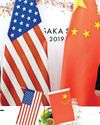Mistry's removal will not solve Tata Group's problems; but it is an opportunity to do it the family way.

Four years ago, when Ratan Tata decided to hang up his boots after an illustrious tenure as chairman of Tata Group, the salt-to-software conglomerate started a head hunt for his successor. Cyrus Mistry, a member of the Tata Sons board by virtue of his father Pallonji Mistry's 18.4 per cent stake, was part of the committee that was formed to find Tata's successor. During the selection process, however, Mistry impressed the other members of the committee so much so that they decided not to look any further.
Mistry had proved his mettle as managing director of his family firm Shapoorji Pallonji and Company, and had served as director of Tata Elxsi and Tata Power. His father's clout in Bombay House, the Tata Group head quarters, also helped in no small measure in his selection. Mistry was only the second chairman—after Nowroji Saklatwala, who led the group from 1932 to 1938—of the 144-year-old group to not bear the Tata surname.
Saklatwala had had the shortest term as Tata chairman, which was interrupted abruptly when he died of a heart attack in 1938. But on October 24, Mistry's term turned out to be shorter, when Tata Sons announced that its board had replaced him and given charge to Ratan Tata as interim chairman.
Few people had seen it coming. But within minutes theories started emerging, postulating the reasons for the sudden decision. Many of them attributed it to the lacklustre performance of some Tata Group companies, and some others to Mistry's handling of crucial issues like the dispute with NTT Docomo and Tata Steel's sick assets in Europe. Then there was talk on a clash of culture between the old guard and Mistry's methods.
Denne historien er fra November 6, 2016-utgaven av THE WEEK.
Start din 7-dagers gratis prøveperiode på Magzter GOLD for å få tilgang til tusenvis av utvalgte premiumhistorier og 9000+ magasiner og aviser.
Allerede abonnent ? Logg på
Denne historien er fra November 6, 2016-utgaven av THE WEEK.
Start din 7-dagers gratis prøveperiode på Magzter GOLD for å få tilgang til tusenvis av utvalgte premiumhistorier og 9000+ magasiner og aviser.
Allerede abonnent? Logg på

The female act
The 19th edition of the Qadir Ali Baig Theatre Festival was of the women and by the women

A SHOT OF ARCHER
An excerpt from the prologue of An Eye for an Eye

MASTER OF MAKE-BELIEVE
50 years. after his first book, Jeffrey*Archer refuses to put down his'felt-tip Pilot pen

Smart and sassy Passi
Pop culture works according to its own unpredictable, crazy logic. An unlikely, overnight celebrity has become the talk of India. Everyone, especially on social media, is discussing, dissing, hissing and mimicking just one person—Shalini Passi.

Energy transition and AI are reshaping shipping
PORTS AND ALLIED infrastructure development are at the heart of India's ambitions to become a maritime heavyweight.

MADE FOR EACH OTHER
Trump’s preferred transactional approach to foreign policy meshes well with Modi’s bent towards strategic autonomy

DOOM AND GLOOM
Democrats’ message came across as vague, preachy and hopelessly removed from reality. And voters believed Trump’s depiction of illegal immigrants as a source of their economic woes

WOES TO WOWS
The fundamental reason behind Trump’s success was his ability to convert average Americans’ feelings of grievance into votes for him

POWER HOUSE
Trump International Hotel was the only place outside the White House where Trump ever dined during his four years as president

DON 2.0
Trump returns to presidency stronger than before, but just as unpredictable